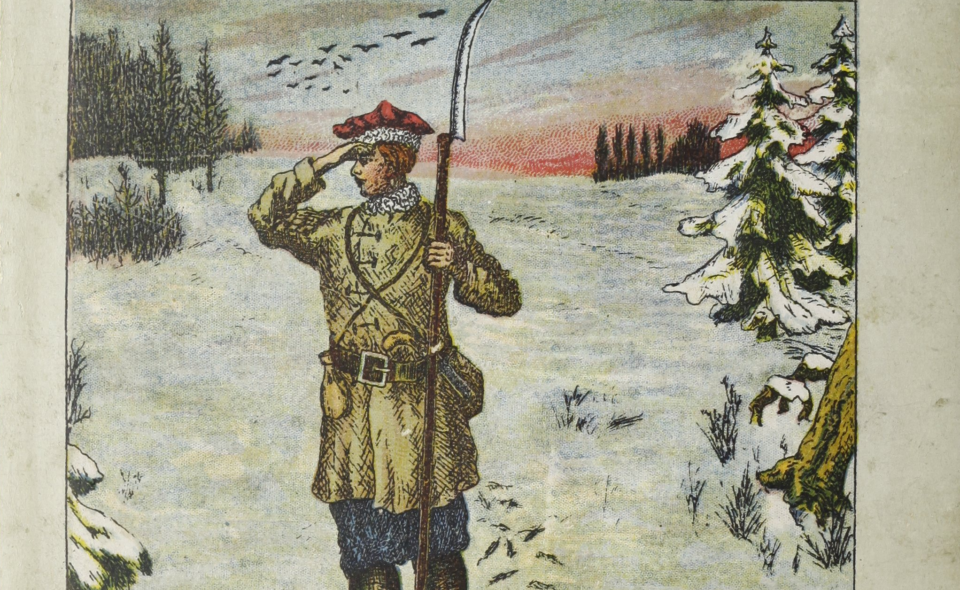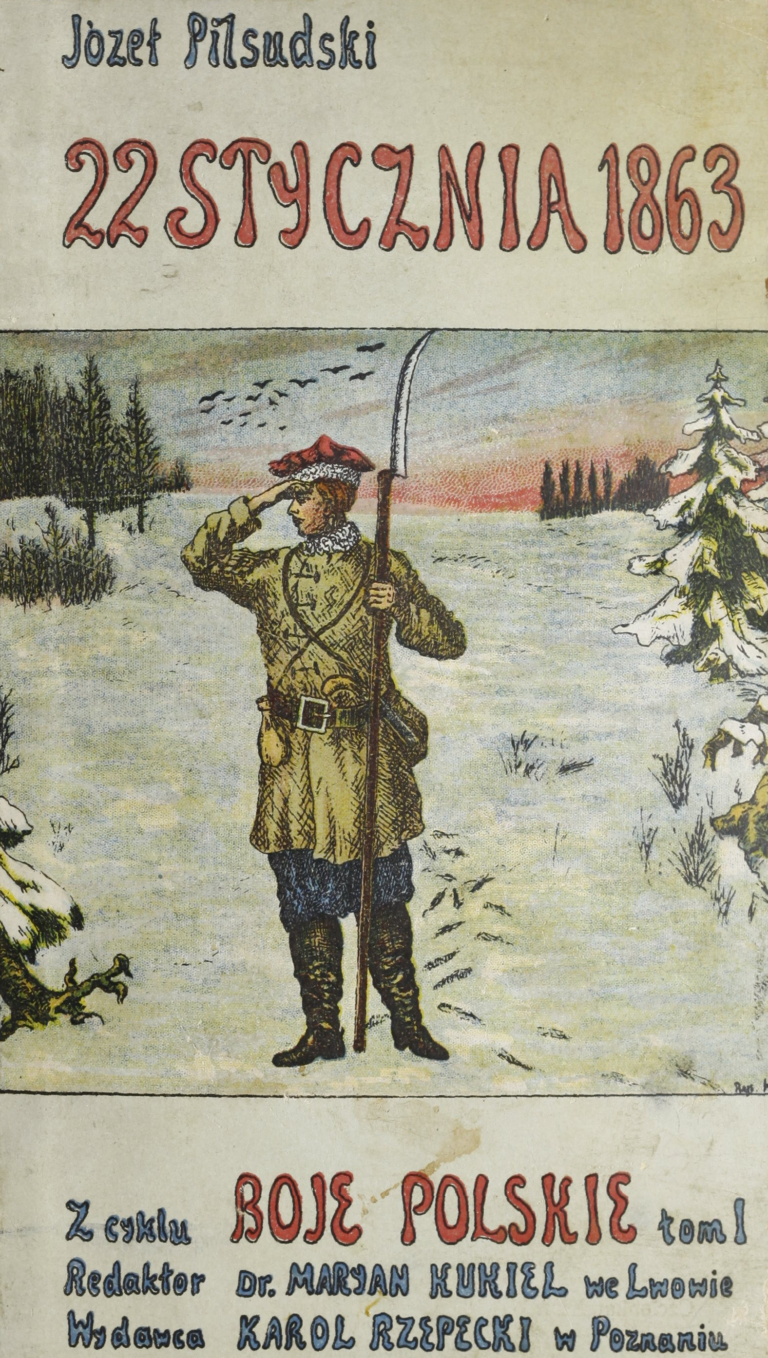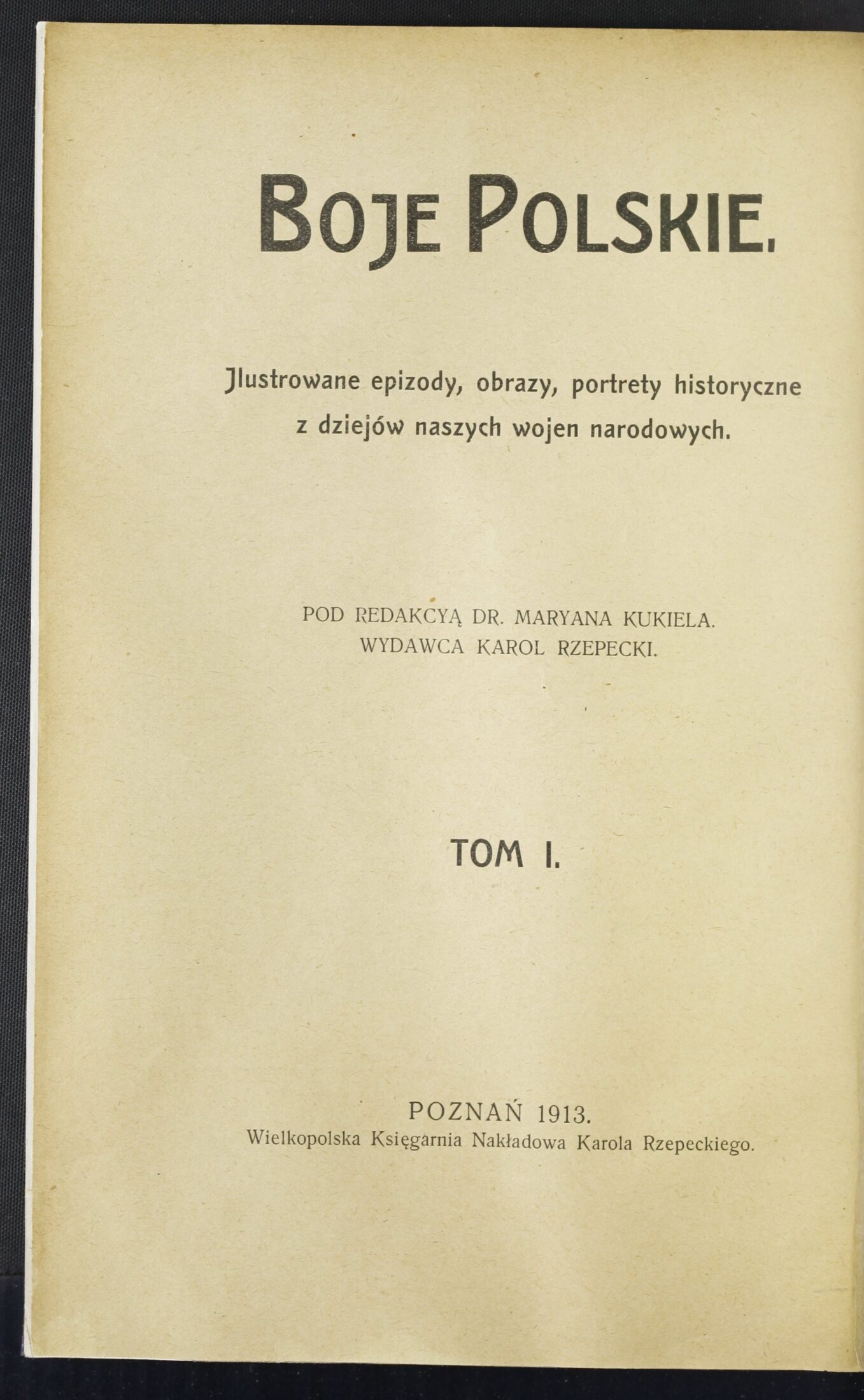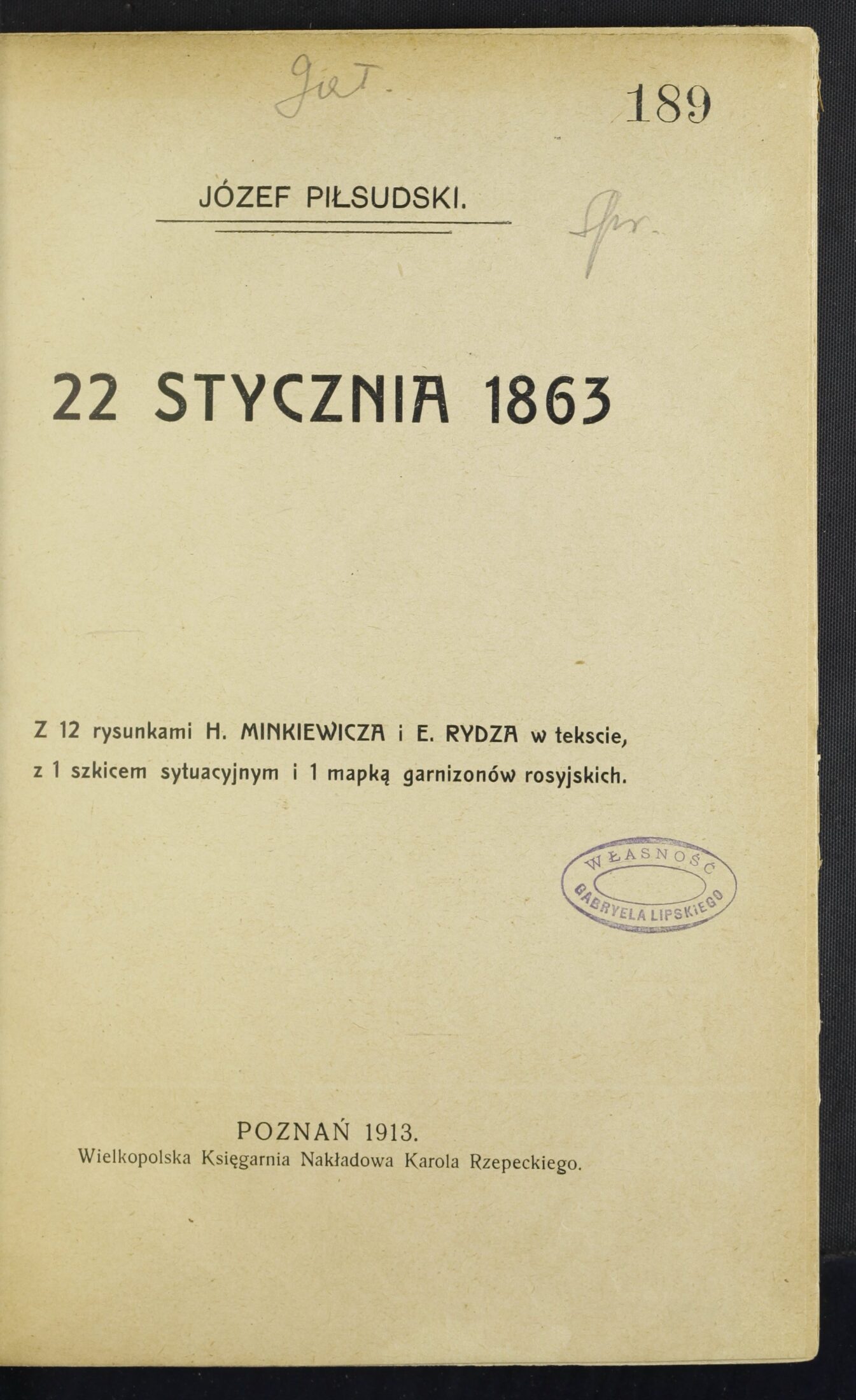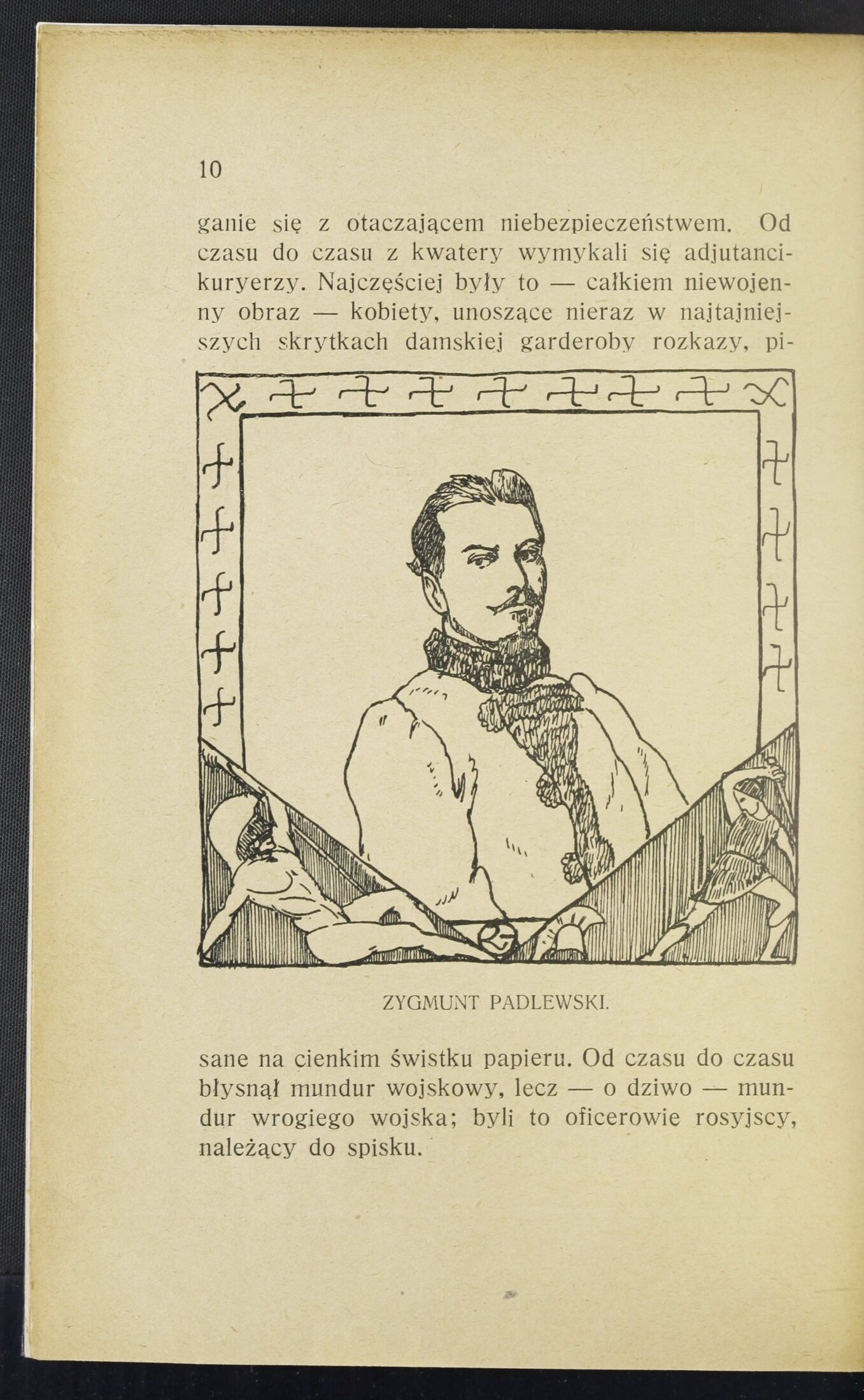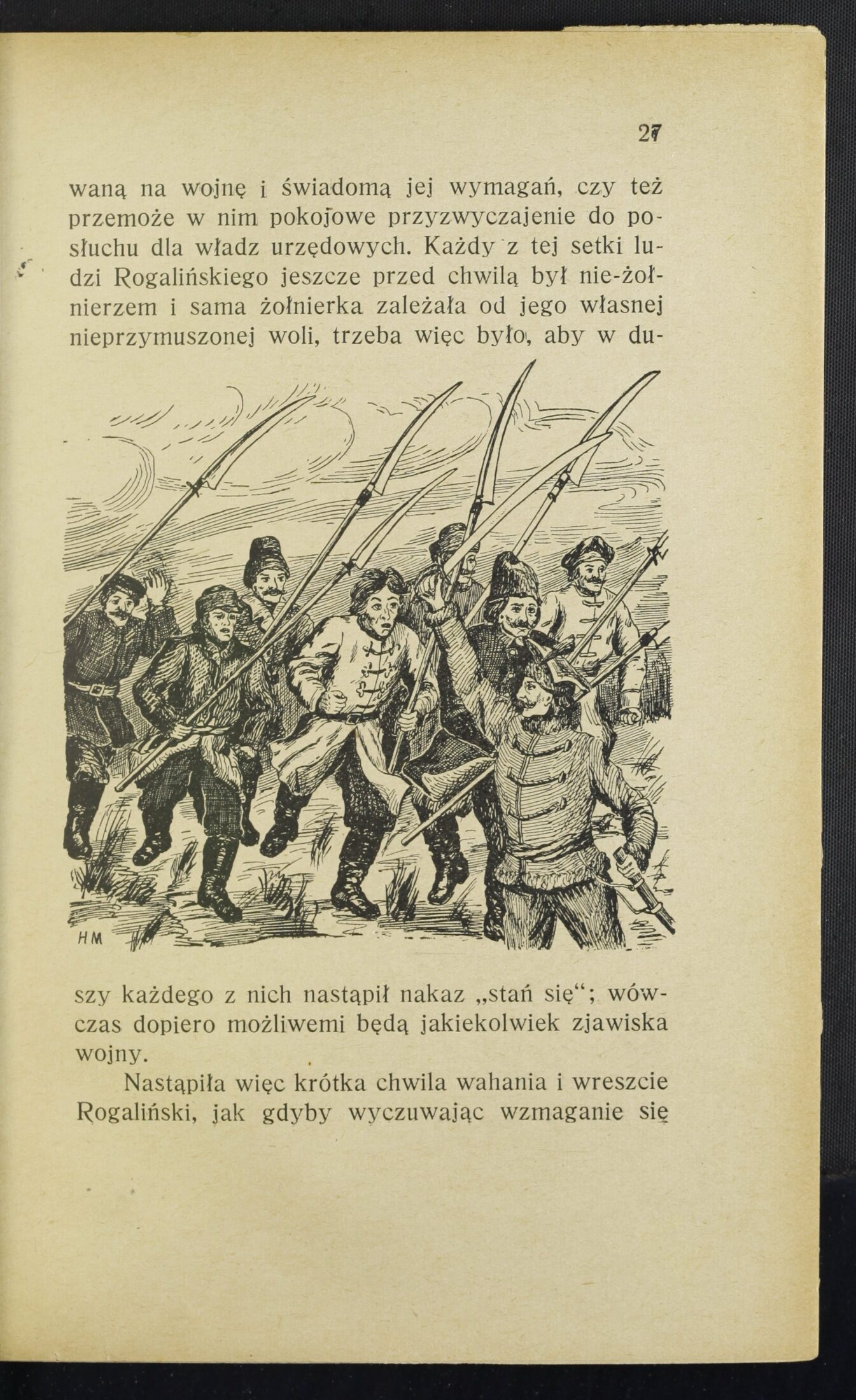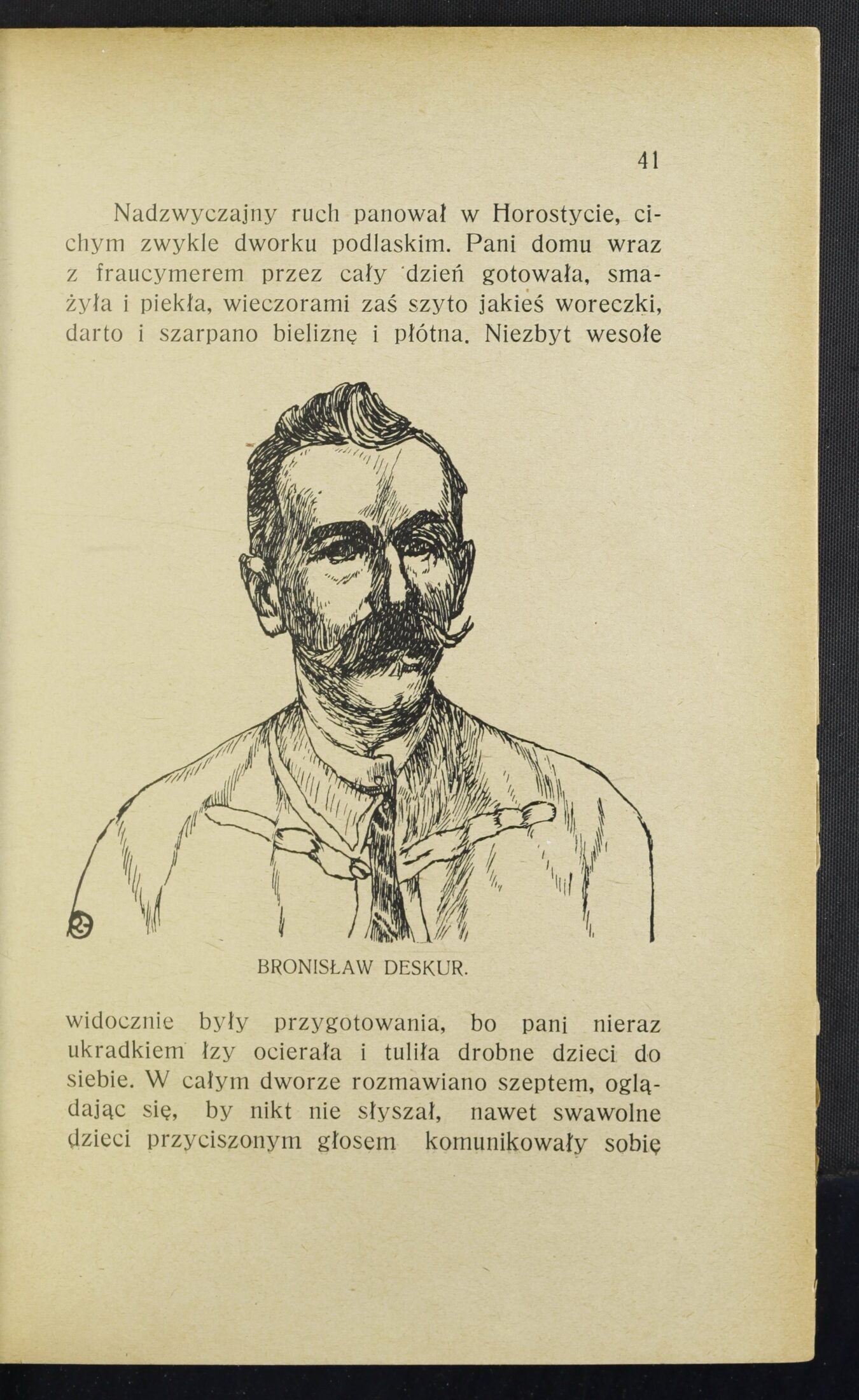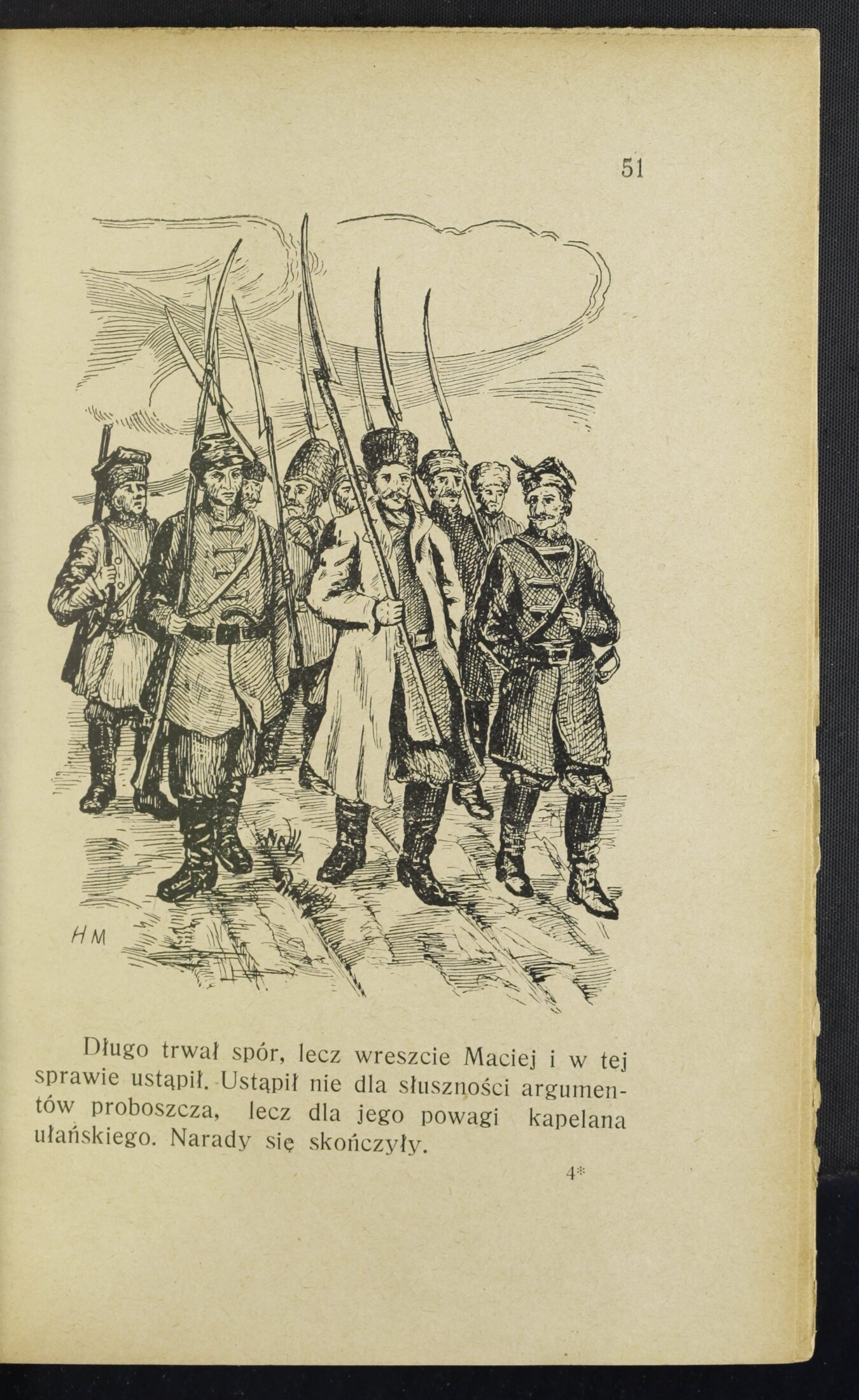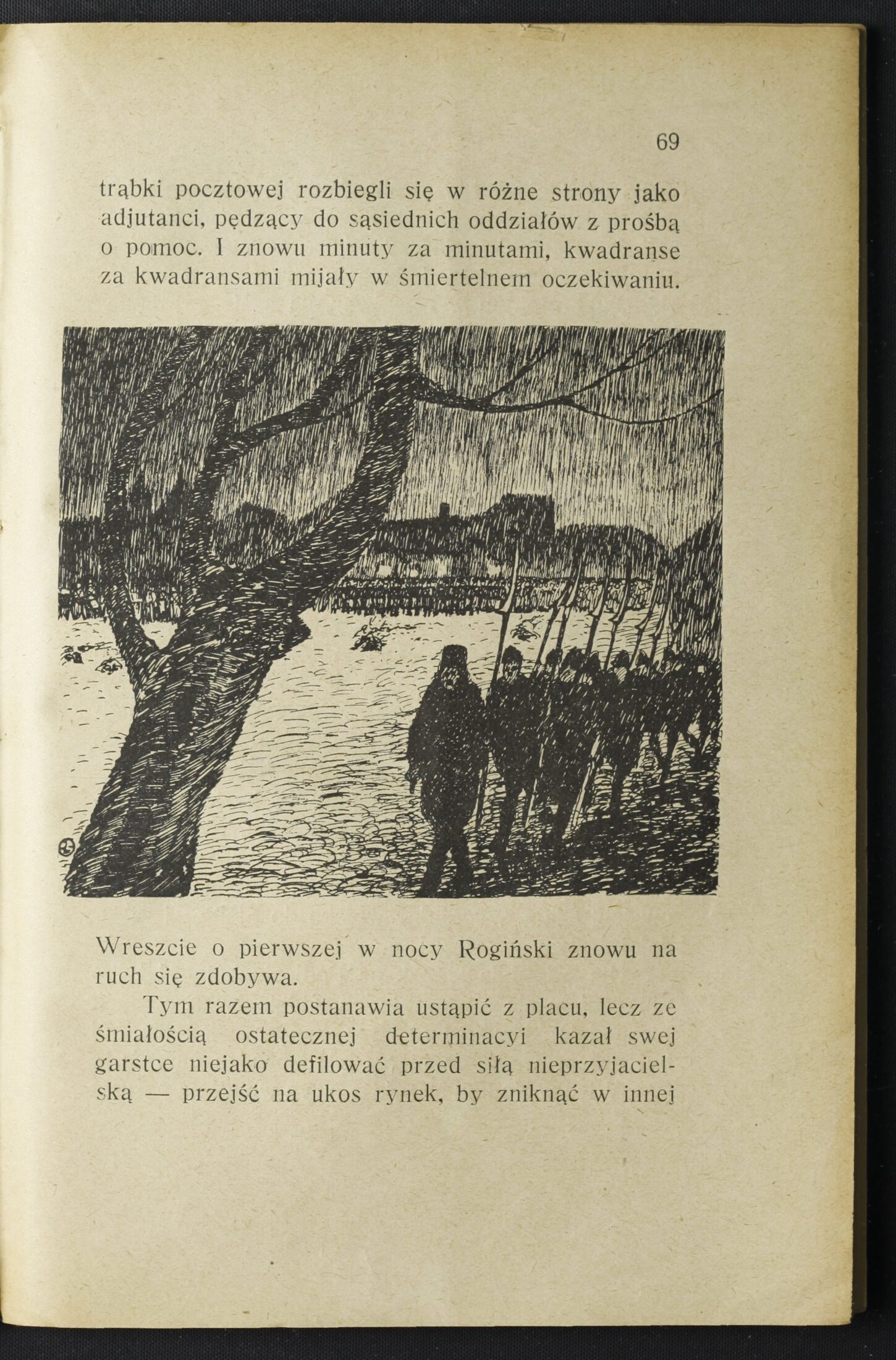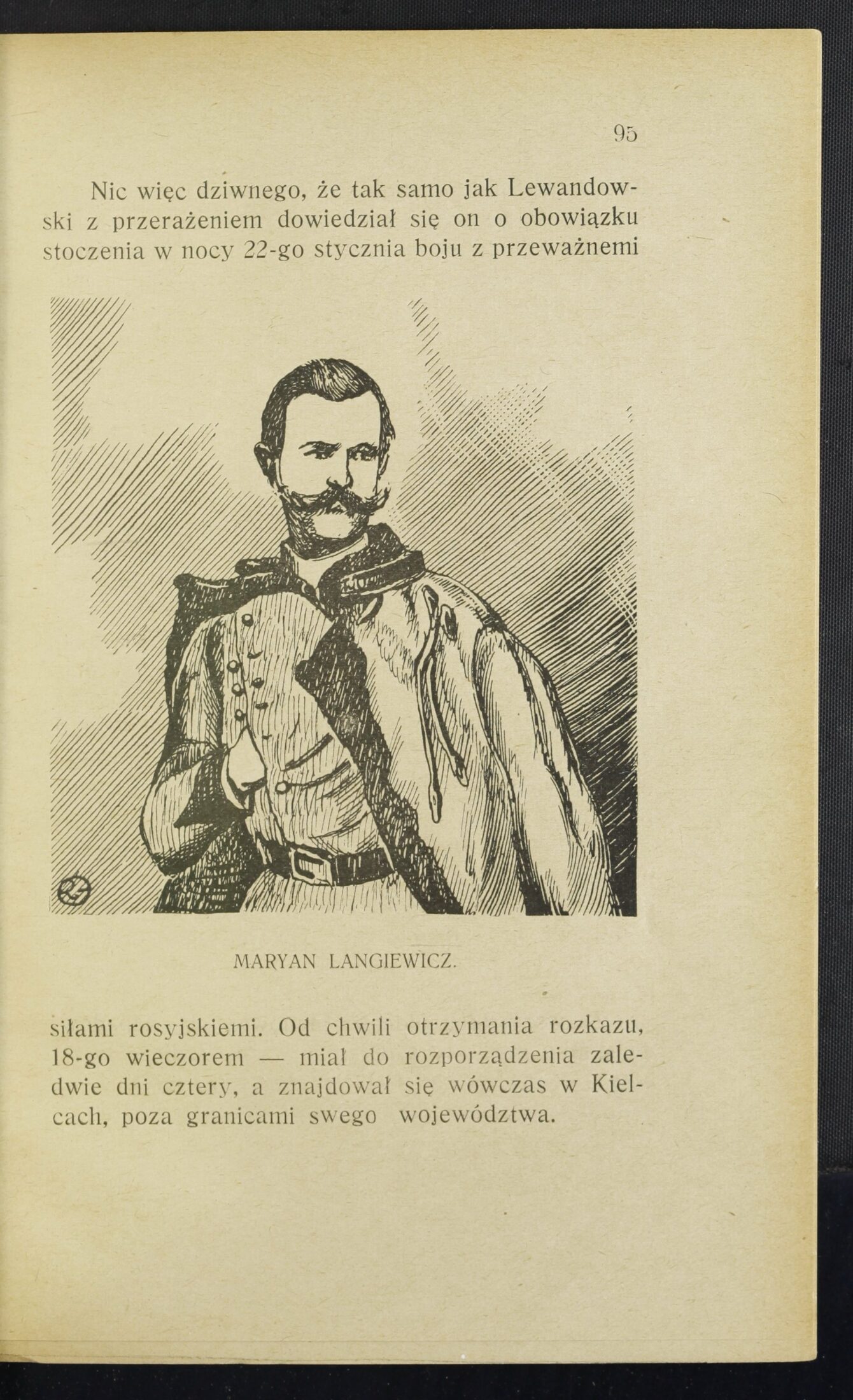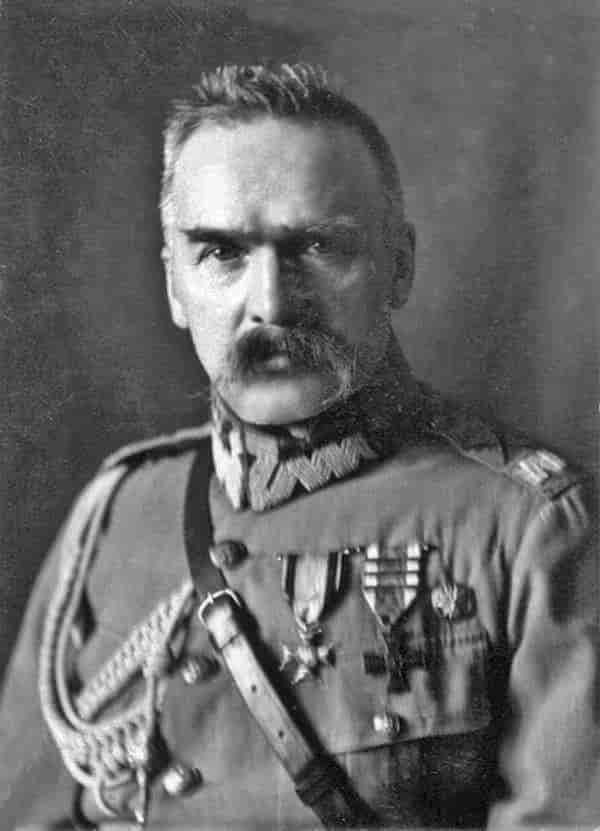There are two valuable collections in the library's collection: old prints (828 volumes from the 16th-18th centuries) and 19th-century polonica (about 8200 volumes), which make up the National Library Resource. Here we would like to present to you the most interesting and valuable collections that the library has in its collection. We also invite you to visit the Library of the NIKIDW Branch in Pulawy, where readers can directly acquaint themselves with selected titles.
***
"January 22, 1863" - Pilsudski, Jozef (1867-1935)
Poznan 1913
O tym, że Józef Klemens Piłsudski to wybitny polski działacz społeczny i niepodległościowy, żołnierz, polityk, mąż stanu wie z pewnością każdy Polak. Niektórzy znają szczegółowo Jego życiorys, karierę polityczną i dorobek życiowy natomiast niewielu wie, że Piłsudski pisał książki. Jedną z takich publikacji, dostępną w Bibliotece Narodowego Instytutu Kultury i Dziedzictwa Wsi, jest prezentowane dzieło:
Jozef Pilsudski was born on December 5, 1867 in Zułów near Vilnius - he died on May 12, 1935 in Warsaw. He came from a family with patriotic traditions. His father, Jozef Wincenty (1833-1902), was during the 1863 uprising a commissioner of the National Government in the Rosien district, while his mother, Maria of Billewicz (1842-1884), came from a well-known noble family of the Mogiła coat of arms. The parents married after the outbreak of the January Uprising (April 23, 1863).
Pilsudski graduated from gymnasium in Vilnius, then in Kharkiv 1885 he began studying medicine at the local University, where he began underground activities in independence student organizations. Arrested and sent to punishment by the tsarist authorities, he always ended up with other exiled Poles, former January insurgents. And probably from this came the desire to document, collect, write and publish a work on the January Uprising in 1913.
Before the book was written, Jozef Pilsudski meticulously combed through many documents and materials relating to what was undoubtedly one of the greatest historical patriotic uprisings of Poles. He researched this historical period looking for evidence that the struggle in 1863, was not lost in advance, just poorly prepared incompetently conducted and did not take advantage of all opportunities.
In his lectures at the Cracow School of Political Science in 1912 and 1913, Jozef Pilsudski stressed that in the unequal struggle against the partitioner, given the scarcity of material resources, emphasis should be placed on the spiritual side of the struggle. It is also necessary to take into account the need to create an army of one's own, if only under conditions of captivity. He exhorted the nation with his speeches to take up the next Polish battles, joking in his own way, bluntly, with the weak in spirit: "In three pines today our countryman will get lost, and he approaches a horse like a tiger."
J. Pilsudski wrote "January 22, 1863" a year before the outbreak of World War I. The work was published back in 1913 by the Poznan bookseller Karol Rzepecki, who, with the editorial assistance of Dr. Marian Kukiel (a historian and later general), intended to print a whole series of volumes by recognized authors proficient in history under the common title:
"Polish Battles. Illustrated episodes, pictures, historical portraits from the history of our national wars." Despite a flurry of organizational, military and political work, Jozef Pilsudski undertook to write the first volume for the above publication.
In an original way, Pilsudski combined in the book the historical factuality of the events of the night of January 22, 1863 with literary description. He also set as his main goal the familiarization of the public with the history of the Polish military, as he attached great importance to this.
In a letter to Aleksandra Szczerbińska dated 18. IX. 1913 he wrote that: "I can't get a plan, how to describe the night of January 22 itself, where to start, how to take the subject? Whether to depict individual scenes, or to give figures and data with criticism, and as long as on the plan and method of writing I have not stopped - as long as it is difficult to write ..."
Pilsudski's book was illustrated with 12 drawings in the text by Henryk Minkiewicz-Odrowąż [Major General of the Polish Army, commander of the Border Protection Corps, Knight of the Order of Virtuti Militari] and Edward Rydz [pseud. "Smigły" - Polish military officer, politician, Marshal of Poland, General Inspector of the Armed Forces, Commander-in-Chief of the Polish Armed Forces in the defensive war of 1939].
The Polish Battles series, the first, inaugural volume of which was Jozef Pilsudski's "January 22, 1863," published for the 50th anniversary of the January Uprising, later included only two works by other authors, as World War I stood in the way of editorial intentions.
Pilsudski, while writing the book, stressed that his intention was to build a bridge between the then living generation and the generation of 1863. He included this in the words: "You died not for nothing and lessons for us from your death can flow".
On the 158th anniversary of the outbreak of the 1863 U prising, falling on January 22, it is worth mentioning that the January Uprising [1863-1864] was the longest-lasting independence uprising against one of the partitioners - Russia - in the post-partition era, which consisted of more than 1,200 battles and skirmishes. More than 200,000 insurgents, gathered in numerous units, took part. It drew all strata of society into the struggle. It left a strong imprint on the international relations of the time, and finally caused a huge social and ideological breakthrough in national history, which had a decisive impact on the development of modern Polish society.
Zbiory Biblioteki Narodowego Instytutu Kultury i Dziedzictwa Wsi zapraszają do lektury tej i innych książek dotyczących Powstania Styczniowego. Warto dodać, że w 2018 roku nakładem Centralnej Biblioteki Rolniczej im. Michała Oczapowskiego w Warszawie wydano liczący 110 stron reprint dzieła Józefa Piłsudskiego (1867-1935) – „22 stycznia 1863” z ilustracjami.
Photo: public domain polona.pl
